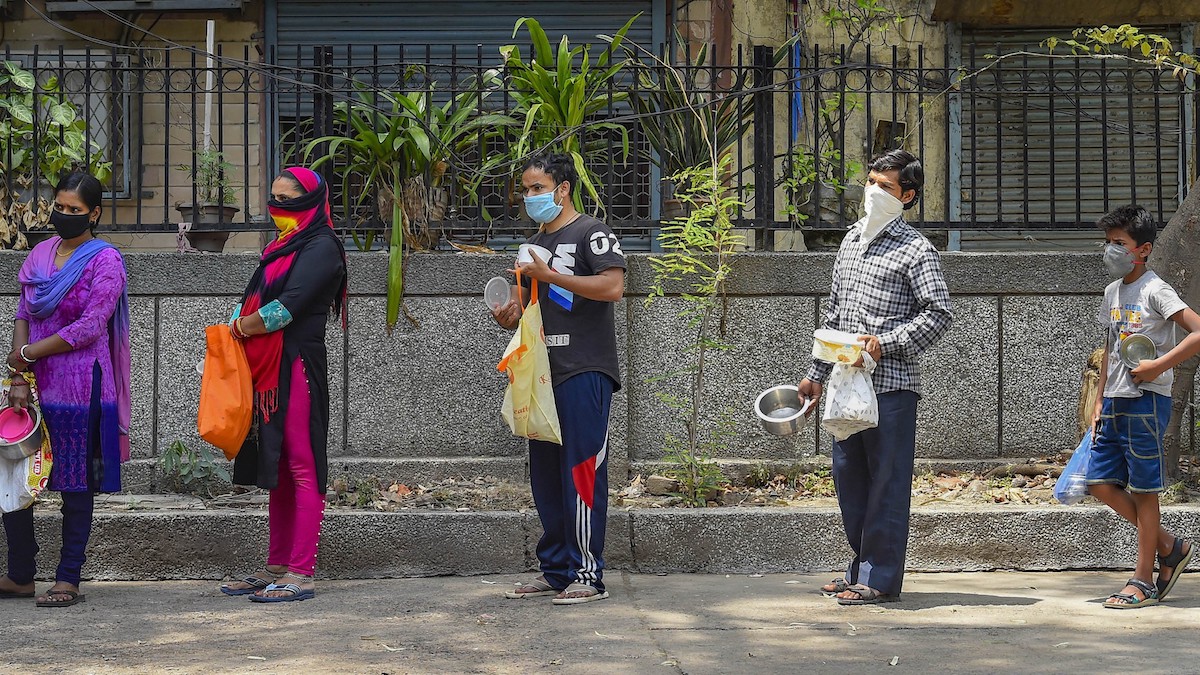The Indian government has fallen short of its obligations to guarantee the right to housing during the COVID-19 pandemic, the ICJ said in a briefing paper released today.
Millions of people in India live in informal settlements with poor infrastructure and in overcrowded living conditions, which makes maintaining physical distance during the COVID-19 pandemic difficult, if not impossible. Internal migrant workers in particular have been stranded in informal settlements in urban locations far from their homes as has been previously highlighted by the ICJ. During most of the lockdown period from 22 March to 29 April, these workers could not travel home where they would have had easier access to food and other basic necessities. In a briefing paper on the Right to Food published on 27 April, the ICJ called on India to take immediate steps to guard against an impending “hunger crisis”.
Maitreyi Gupta, ICJ India International Legal Advisor says, “The right to housing and other human rights violations faced in particular by the poor due to the lockdown is massive. Its effects will be long-term. We urge the Government to take urgent steps to avert the housing crisis. The Government must prioritize housing with basic necessities in both rural areas and deprived urban areas. It must ensure basic necessities in quarantine facilities and shelter homes. Finally, the Government must guarantee that there are no undue restrictions on related human rights such as the right to movement and the right to livelihood among others.”
In a briefing paper, the ICJ answers the following questions in context of some of the human rights concerns that have arisen as a consequence of lack of access to adequate housing during the COVID-19 pandemic:
- What are the principal concerns regarding the right to housing in India?
- What are India’s legal obligations to guarantee the right to housing?
- What actions must the Government take to fulfill its obligation to guarantee the right to housing during COVID-19?
- What does the International Commission of Jurists recommend?
The ICJ calls upon India to undertake the following :-
- Direct provision and facilitation of accessing to housing
- Increase the number of shelters with appropriate facilities to accommodate homeless persons and informal sector workers who find themselves without accommodation during lockdown;
- Provide adequate emergency housing for homeless persons and daily wage workers who find themselves without accommodation, considering for instance use of vacant government buildings, community halls or other buildings with adequate space and services, including water, sanitation, and clean bedding; and
- Extend the rent moratorium at least until the lockdown ends, and take other measures such as providing financial assistance to landlords and property owners to ensure that the moratorium is implemented.
- Housing policy adjustments
- Immediately enact a moratorium on all forced evictions until at very least the end of the lockdown and other measures taken pursuant to the Disaster Management Act to combat COVID-19. No forced evictions of people from their homes should occur under any circumstances, regardless of who is being evicted or why.
- Legal enforcement of the right to housing
- Ensure that those labourers who are unlawfully evicted in violation of lockdown orders have recourse to legal remedies including compensation, reparation, and where necessary, provision of alternative adequate accommodation;
- Make public information about hotlines, shelter homes, and other mechanisms made available for domestic violence;
- Respond promptly and effectively to every case of domestic violence;
- Enforce applicable laws on domestic violence and non-discrimination in access to housing.
Infographic
Download the Right to Housing Infographic here.
Contact
- Maitreyi Gupta, ICJ India Legal Adviser, t: +91 77 560 28369 e: maitreyi.gupta(a)icj.org
- Frederick Rawski, ICJ Asia-Pacific Director, t: +66 64 478 1121; e: frederick.rawski(a)icj.org
Download
India-Right-to-Housing-COVID19-Briefing-Paper-2020-ENG (PDF)

